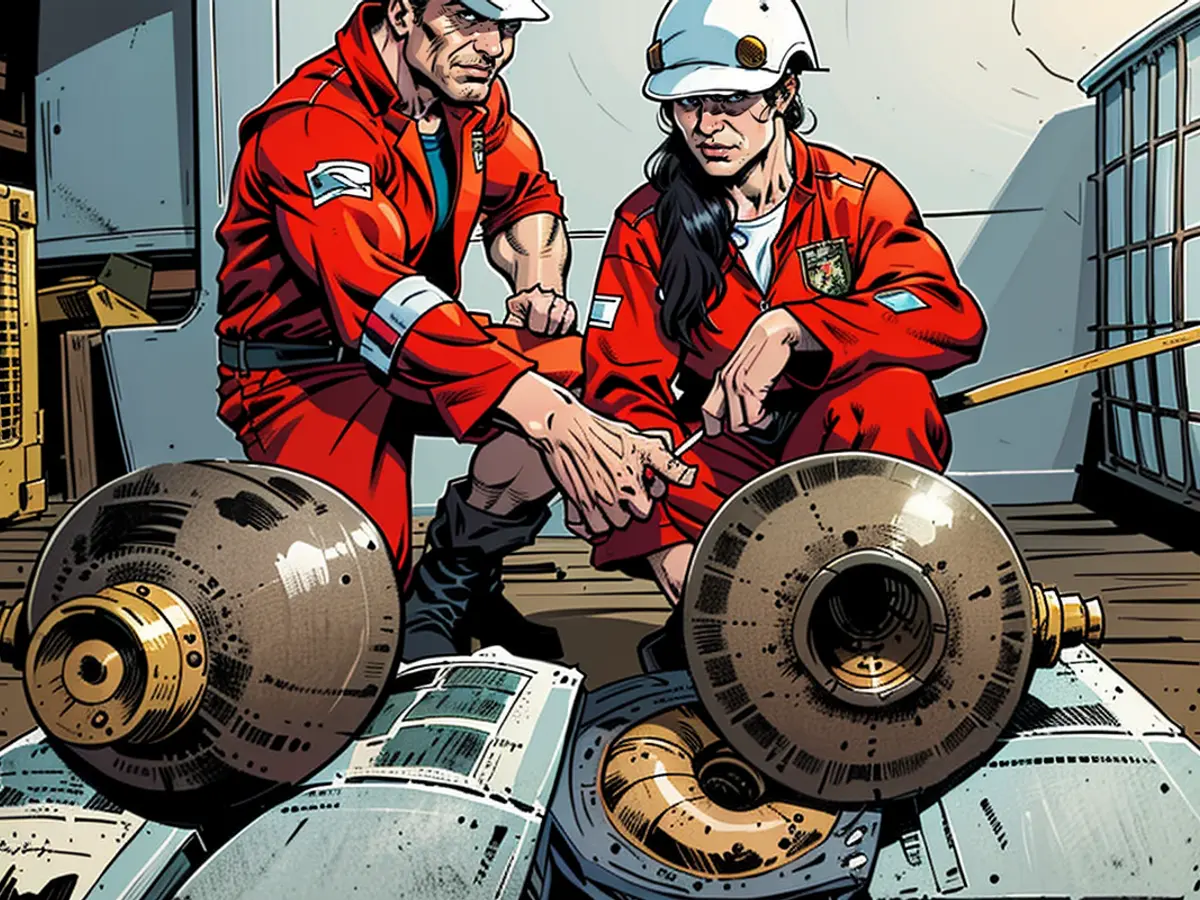Archaeologists Retrieve 3000-Year-Old Amphorae from Ocean Floor
In the north coast of Israel, a 3000-year-old shipwreck hidden deep beneath the Mediterranean sea was unearthed. The cargo, consisting of hundreds of ancient amphorae, was discovered by Energean, a London-based energy firm, at a staggering depth of more than 1600 meters. According to the Israeli Antiquities Authority, these jars with two handles were used to transport goods like wine, olive oil, or fruit during the Bronze Age.
The Antiquities Authority announced this as a "groundbreaking discovery." Recent retrievals suggest that these jars date back to the late Bronze Age and belonged to the Canaanites, who inhabited modern-day Israel, Lebanon, parts of Jordan, and Syria before the arrival of the Israelites. Some of the finds in the jars included oil, wine, and fruit.
The large number of amphorae on a single ship indicates significant trading relationships with the ancient civilizations along the Mediterranean coast, according to Jacob Sharvit, the director of the Marine Archaeology Department. This is the first time such a ship from this era has been discovered in the deep sea, nearly 90 kilometers from the shore, possibly due to a storm or pirate attack.
Typically, only two shipwrecks from this era with cargo have been found, both close to the Turkish coast. This discovery provides evidence that seafarers at the time could cross the sea without sighting the coast. Sharvit believes this reveals the navigational skills of ancient sailors, who may have relied on the sun and the stars for navigation.
Energean had initially detected the accumulation of jars during a routine seabed survey a year ago using a diving robot. The company extracts gas from the Karish Field off the coast of Israel.
The excavation of the site was carried out by employees of the company and the Antiquities Authority with a specialized deep-sea vessel, revealing that the cargo belonged to a ship approximately 12 to 14 meters long that had sunk. Most of the artifacts and possibly even the wooden planks of the shipwreck were buried in the muddy seabed.
Two weeks ago, the Israeli newspaper "Haaretz" reported that the two jars were retrieved as part of a pre-planned operation and the development of special equipment. The amphorae are set to be exhibited this summer, although the fate of the rest of the cargo and the possible remains of the ship remains unknown. According to "Haaretz", the wooden parts of the ship, which were above the ground, have disappeared.


Read also:
The discovery of the ancient amphorae in the Mediterranean Sea near Israel's north coast has shed light on the historical trading relationships between ancient civilizations along the coast during the Bronze Age. This educational finding also highlights the navigational skills of sailors from that era, who were capable of crossing the sea without sighting the coast.







